The Fat Lady Has Sung…
Meriden
RIP, Mid-00’s
… And this museum is over. Yes, another of the Lester Dequaine triumvirate of wildly random museums – the Rosa Ponselle Museum – is closed along with the National Shaving and Barbershop Museum and the Frank Chiarenza Museum of Glass.
I have seen Mr. Desquaine’s name spelled Dequaine equally. A commenter below yelled at me and wrote “Dequaine” so I’ll go with that.
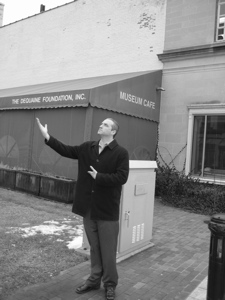
Rosa Ponselle? For shame! She’s Meriden’s most famous daughter! She was born Rose Melba Ponzillo on January 22, 1897, in Meriden, the youngest of three children. Her parents were Italian immigrants. Rosa had an exceptionally mature voice at an early age and, at least in her early years, sang on natural endowment with little, if any, vocal training. She sang in movie houses and cafes in Meriden and at church, and she soon became well-known locally for her exceptionally beautiful voice.
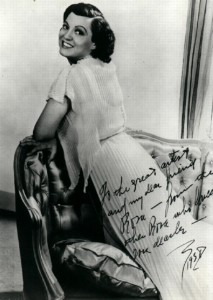
I was going to reprint the whole to-do on Ms. Ponselle, but you can read up on her yourself here. Not that I know anything about opera, but she seems pretty darn famous. Heck, Pavarotti said that Ponselle was, “The Queen of Queens in all of singing.” No wonder Lester Dequaine created a museum in her honor. And no wonder he fought hard for this one (as opposed, apparently, for the other two housed under the same roof).
Seems like the city sort of pushed him out… Some highlights from an old article on Dequaine and the Ponselle Museum:
The future of the Ponselle collection could be at a place like Yale University or the Hartt School in West Hartford, somewhere where music students and faculty could use it as a resource, suggested Dequaine. “All of this is musing, but these are the kinds of things that could happen,” he said… Dequaine says he feels a deep responsibility to Ponselle’s legacy. Since gaining control of the collection, he’s become a more avid opera aficionado and a bigger fan of Ponselle’s. “I feel a tremendous burden, because this woman was a superstar, and I feel a great burden has been dropped on my shoulders,” he said.
…
Dequaine had purchased the old International Silver Museum at a city auction in 1997 for $300,000.
Hmmm, so this site is actually the site of another defunct museum!
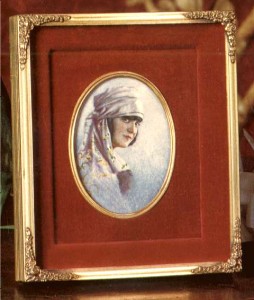
He might have paid less, but there was a competitive bid by a former member of the silver museum’s board of directors. He became a member of the local Ponselle society and offered to house the collection at his building.
…
Dequaine would not sign that contract, she said, but had a contract of his own. Dequaine has a law degree from Fordham University. After working on Wall Street, he was a senior vice president of a chemical company in Westport before he retired. At 77, Dequaine lives alone and has never married. He describes himself as “an individual whose mind is never in neutral.”…
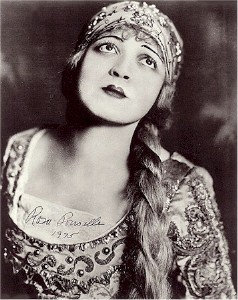
While initial relations between Duke and Dequaine were cordial, they have cooled to the extent of being frozen. Duke plans to meet with the local Ponselle society this week and says she would like to see the collection. But she does not feel comfortable about contacting Dequaine. Dequaine is critical of the way Duke has handled the Ponselle estate. The two are no longer on speaking terms. Duke says she was never invited to Dequaine’s museum, even for events relating to Ponselle, after she’d made the donation. Her upcoming trip will be her first since she brought items for the museum up from Maryland.
…
Dequaine says it rightfully belongs in the Ponselle museum.
…
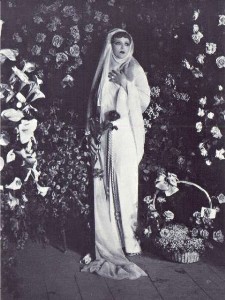
But Dequaine said he received no help during this time and grew tired of shouldering all the work on his own. “Everything that could be done to discourage me was done,” he said. “I never got enough interest or willingness to participate for me to say I’m going to spend the rest of my life and money in Meriden,” he said. When a downtown basketball tournament was held outside his museum, it kept away all visitors except those who were trying to get in to use his toilets, he said. He saw the money the city was investing to rebuild and staff the Curtis center as creating unnecessary competition and a slight to the considerable investment he had made to benefit Meriden. No one came to ask about what was going on at his place, or his plans, he said. “We were just being completely ignored.” Dequaine says he was also kicked out of the Meriden Ponselle society, after he walked out of two meetings in which a board member accused him of trying to steal the Ponselle collection. Now that Dequaine has turned his back on Meriden, there are those who would like to see the Ponselle museum run under different management.
…
There is also some indication that the city may re-examine the property tax-exempt status of Dequaine’s property.”
Now that’s good stuff. (The info is from a now-disappeared Meriden Record-Journal article).
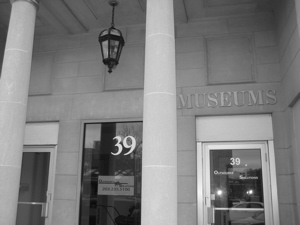
The former home of three four museums

 Daniel J. Cyr says
Daniel J. Cyr says
February 13, 2011 at 6:22 pmRegarding your story “Defunct 3: The Rosa Ponselle Museum.”
What a poorly written article that provides little or no useful information! It is clearly a cut and paste of other newspaper articles (Mostly the Meriden Record) that offers no reasonable flow of information. Your reference to Mr. Dequaine’s (you spelled his name three different ways in this story) rejection of a contract had nothing to do with the purchase of the museum building as one is lead to believe in this story. His rejection was in regard to taking responsibility/control of certain artifacts from the Rosa Ponselle Foundation.
You write about Ms. Duke without any introduction as to who she is — another cut and paste.
Perhaps that is why there is no author credited to this article. It’s just a rampling cut and past from many other authors.
One has to spend so much time reading junk before something good is found.
 Steve says
Steve says
February 13, 2011 at 7:32 pmI’d like to thank Mr. Cyr for his constructive criticism. It sort of makes me (the author of this blog) feel kind of good in a way. You see, this page was written several years ago – before I realized that just blockquoting (indenting both left and right margins) didn’t effectively show that the content was not mine. On more recent pages, I italicize such “cut and pastes.” I didn’t feel the effort to comb through all the old stuff to italicize all blockquotes was worth it.
And I should note that such voluminous cut and pastes don’t occur on still-existing museums, just these random old defunct ones for the most part – are still rarely then.
You see, Mr. Cyr, all your anger and disdain for all the content after the words “Some highlights from an old article on Desquaine and the Ponselle Museum:” – while perhaps merited – are for someone else. Not me. I feel this was pretty clearly spelled out in the “article,” but perhaps not.
But even before that – the whole second paragraph? That was from Wikipedia, which the first sentence of the third paragraph (“I was going to reprint the whole to-do on Ms. Ponselle, but you can read up on her yourself here.”) clearly cites and suggests that you yourself can click on that blue text to learn more from where that came from.
And all those dashed lines between paragraphs? That’s blog shorthand for “I cut the original article at this point for brevity’s sake.”
And that last paragraph where it the text turns blue? Where I suggest you can read the full article from which I “cut and pasted” from? That’s the citation. That’s where, for a second time on this page, I pointedly tell the astute reader where 90% of what he just read came from.
I don’t steal words, Mr. Cyr. (And the pictures are from wiki commons I think.)
Now, on the point of the misspellings – that is an unfortunate error on my part and I do apologize. Thanks for reading.
 Tom Stansbury says
Tom Stansbury says
August 24, 2012 at 6:19 pmThanks for the informative article on the fate of the Ponselle Museum. Sad. I studied voice in the 70s with a student of Ponselle’s, and have watched her even since. As a teenager I remember going to performances at the Baltimore Opera Company and seeing Miss Ponselle coming on stage afterward for a bow. She was the artistic director of the Balto Opera Co for many years after her retirement from singing.
So I write all this as a way of getting to my point, which is: Do you know what has become of the Ponselle collection of late (2012)?
Thanks for your interest in taking the time to put this information on the site. I do appreciate your efforts. Tom Stansbury
 jef wilson says
jef wilson says
April 29, 2016 at 12:46 pmYale is now in the process of digitizing wire recording of Rosa Ponselle from around 1950!
 Margaret says
Margaret says
July 12, 2017 at 10:56 pmWhoever is ultimately responsible, no matter, for this is ultimately a very sad commentary on the lack of interest for the legacy of the greatest female singer this country ever produced. And in her hometown yet. The world has gone mad.